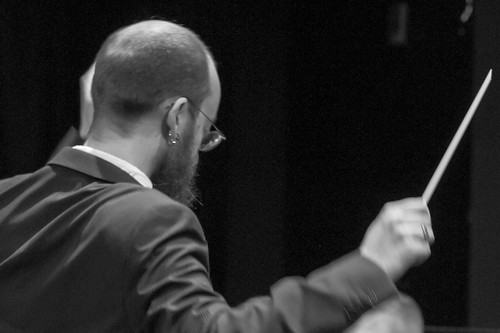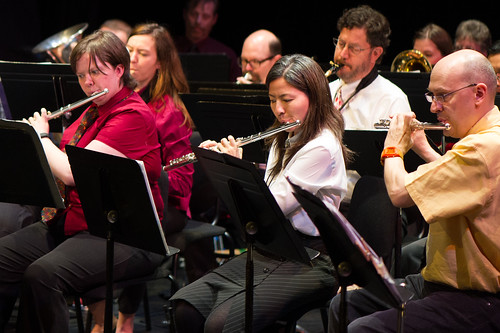
Monthly Archives: May 2015
Antigay Bakery will Appeal Discrimination Ruling
Antigay Bakery will Appeal Discrimination Ruling
After “much careful prayer and consideration,” a family that owns a chain of bakeries decides to fight for the “right” to discriminate against gays.
Thom Senzee
www.advocate.com/world/2015/05/31/antigay-bakery-will-appeal-discrimination-ruling
Prim & Proper!

Moscow Authorities Forcefully Detain Activists At Gay Rights Rally
Moscow Authorities Forcefully Detain Activists At Gay Rights Rally
Russian authorities forcefully dissolved an unsanctioned gay rights rally in Moscow on Saturday, detaining up to 20 people, both activists and anti-gay protesters, reports Reuters. Activists met at Tverskaya Square where police clad in riot gear had lined the square ahead of the activists arrival, anticipating clashes between protesters and activists.
Peaceful activists received hostile reactions from anti-gay protesters, with many of the protesters charging and openly attacking activists. Police maced and forcefully detained several activists and violent protesters including Dmitry Enteo, leader of Orthodox group God’s Will. Leading gay rights activist Nikolai Alexeyev, who was thrown into the back of a police van with a bleeding hand, criticized Russian authorities as he was being detained:
“It is lawlessness of Moscow’s and Russian authorities – what is happening here is a complete lawlessness. We are just trying to hold a peaceful human rights action.”
Witnesses at the event saw protesters and authorities ripping rainbow flags out of the hands of activists. Under Russian law, rainbow flags constitute as “gay propaganda” and are considered illegal.
Last week, Russian authorities detained 17 LGBT activists in Moscow at a flash mob event where they planned to release balloons, calling the act “gay propaganda.”
Anthony Costello
_B144570

Rick Santorum Will Fight The Supreme Court If It Legalizes Gay Marriage
Rick Santorum Will Fight The Supreme Court If It Legalizes Gay Marriage
Republican presidential candidate Rick Santorum said on Sunday that if the Supreme Court legalizes gay marriage later this year, he would dispute the decision, saying that the court “doesn’t have the final word.”
“Of course I’d fight it,” he said on NBC’s “Meet the Press.” “Roe versus Wade was decided 30 some years ago, and I continue to fight that, because I think the court got it wrong. And I think if the court decides this case in error, I will continue to fight, as we have on the issue of life … We’re not bound by what nine people say in perpetuity.”
Santorum justified his stance by arguing that the executive and legislative branches are obligated to challenge the judicial branch.
“I think it’s important to understand that the Supreme Court doesn’t have the final word. It has its word. Its word has validity. But it’s important for Congress and the president, frankly, to push back when the Supreme Court gets it wrong,” he said.
The Supreme Court last month heard oral arguments on Obergefell v. Hodges, a case involving whether or not state bans on marriage equality are constitutional. It is likely that the court will rule in favor of marriage equality when the decision is announced sometime in June. Since its landmark decisions overturning the Defense of Marriage Act and California’s Proposition 8 in 2013, the court has refused to hear a number of appeals on state marriage equality bans, and in oral arguments, justices cited the growing public opinion in favor of gay marriage.
But among the GOP presidential field, several candidates have contended that state legislatures, not courts, should decide on whether or not to accept gay marriage. Sen. Ted Cruz (R-Texas) even introduced a constitutional amendment protecting states that define marriage as between a man and a woman.
As a social conservative, Santorum has long been a stalwart opponent of marriage equality. He has also said that he would not attend a gay wedding, even if it involved a close family member or friend.
“I just felt like as a person of my faith, that would be something that would be a violation of my faith. I would love them and support them, but I would not participate in that ceremony,” he said.
Watch Santorum’s interview in the video.
— This feed and its contents are the property of The Huffington Post, and use is subject to our terms. It may be used for personal consumption, but may not be distributed on a website.
Rick Santorum Pledges to ‘Fight’ Any Pro-Equality SCOTUS Marriage Ruling – VIDEO
Rick Santorum Pledges to ‘Fight’ Any Pro-Equality SCOTUS Marriage Ruling – VIDEO
Rick Santorum won’t play nice if the Supreme Court rules in favor of the freedom to marry next month, telling Meet the Press moderator Chuck Todd today:
“I think it’s important to understand that the Supreme Court doesn’t have the final word. It has its word. Its word has validity. But it’s important for Congress and the president, frankly, to push back when the Supreme Court gets it wrong,.. “I don’t advocate civil disobedience. I do advocate the role of an informed citizen to try to overturn when a court makes a mistake and gets an issue wrong.
Watch, AFTER THE JUMP…
Kyler Geoffroy
Barnard College Works Toward New Policy On Transgender Admissions
Barnard College Works Toward New Policy On Transgender Admissions
NEW YORK (AP) — On a recent bright spring morning, students admitted to the Barnard College Class of 2019 gathered on campus. As blue-and-white balloons fluttered in the breeze, the prospective freshmen attended panels and lunched on the lawn, chatting animatedly with current students.
There were, of course, young women from a variety of backgrounds, but at least one category wasn’t included: transgender women. Barnard, like other women’s colleges, has traditionally admitted only students born female. But that might be changing.
Next week, Barnard’s trustees are expected to vote on an issue that has arrived loudly and emphatically on the front burner for women’s colleges across the nation: transgender admissions. One by one, schools have announced policies in the past year that address, as never before, the fluidity of gender.
Why the sudden action? “I think certain issues just hit the zeitgeist at a certain point in time,” says Debora Spar, Barnard’s president, who’s led a monthslong effort to explore the issue with her community, including five town halls and a survey that yielded some 900 responses – all of which she says she’s personally read. “History is moving very quickly on this issue.”
Popular culture, too. “Transgender issues have been accelerating in the culture,” says Jennifer Finney Boylan, an English professor at Barnard and herself a trans woman. She points to several recent influential events: Actress Laverne Cox appearing on a Time magazine cover touting “The Transgender Tipping Point.” The Golden Globe-winning TV show “Transparent,” about a trans woman. And, more recently, Bruce Jenner’s transition. “These issues are changing the game,” says Boylan. “It might seem like it’s all happening at once, but why didn’t it happen sooner? I’m delighted that all of these colleges are trying to figure it out.”
But figuring it out is a complex process, and colleges have arrived at differing (and often lengthy) policies. The most recent: Smith College, which decided in early May to admit transgender women but not transgender men (assigned female at birth but identifying as male). Mount Holyoke, on the other hand, has decided to admit both. “We acknowledge that gender identity is not reducible to the body,” said the school’s president, Lynn Pasquerella, in September.
Barnard, now, will have to determine where to draw the line.
“There’s no one right answer,” says Dru Levasseur, director of Lambda Legal’s Transgender Rights Project. “It’s a complex issue, and it reflects the complexity of gender.” To those who might argue that the issue affects only a tiny group of people, Levasseur replies that it’s hugely symbolic.
“It really gets to the heart of who qualifies as a woman, and who qualifies as a man,” Levasseur says. “Which makes it so relevant right now.”
Ahead of the decision, The Associated Press sampled some views across the community.
“WE WANT TO DO THE RIGHT THING”
Spar, the Barnard president, says the issue is hardly brand new; she’s been thinking about transgender admissions since she took her position in 2008. After listening to various views, she feels it boils down to “a split in how people defined what a women’s college is.”
“For part of the community, that mission is defined as educating women,” Spar says. “For another part, it’s about providing a space for gender-oppressed minorities. And when you come down to it, that divide affects how you see the issue of transgender admissions.”
“We really want to do the right thing,” Spar says. “We just have to figure out what the right thing is.”
“WE DON’T WANT TO BE ON THE WRONG SIDE OF HISTORY”
Caleb LoSchiavo, 22, a graduating senior, was born female but, upon arrival at Barnard, began a gradual transition. An Italian and psychology major, LoSchiavo changed names legally last year.
“I arrived here and realized that I wasn’t female,” LoSchiavo says. “I didn’t fit into this idea of womanhood.”
LoSchiavo, who identifies as neither male nor female but “gender fluid,” has been active in transgender issues on campus, and senses that Barnard is ready to admit transgender students: “It would look really regressive and behind the times to say `no.’ We don’t want to be on the wrong side of history.”
But how to define the policy? LoSchiavo thinks Barnard should admit anyone except those who identify as male. That would exclude trans men.
“If you KNOW you’re a man, then a women’s college is not your place,” LoSchiavo says. “Men have male privilege, that’s a fact. If people see you as a man, you’re going to be treated with more respect. Men don’t need to be at a women’s college to see themselves reflected in leadership. They can look at the entire history of our nation.”
“THIS IS PART OF BARNARD’S MISSION”
If Barnard’s decision goes that way, it would effectively exclude someone like Mark King, a music major who’s just completed junior year and is a trans man.
King, 21, began identifying as a male at 16 or 17. But he didn’t come out publicly until he’d arrived at Barnard. “In high school, there are just so many people who know you, so many people to get past,” he says. “It was excellent to come to Barnard and introduce myself as I am.”
King always gets the same question: “Why would a trans man want to come to Barnard?” His answer is that Barnard is not MORE rigid because it’s a women’s college; it’s less.
“Barnard appealed to me as a trans person because I knew that the environment here was much more accepting, and that people were completely open and happy to learn about other people’s experiences,” he says.
King, who among other initiatives has worked with the college to establish gender-inclusive bathrooms in every Barnard building, agrees with many that the first priority is to get trans women accepted.
“But,” he says, “I think Barnard should admit all students for whom womanhood is or HAS BEEN part of their identity.”
To bolster his case, King points to Barnard’s very mission statement, which says that the school “embraces its responsibility to address issues of gender in all of their complexity and urgency, and to help students achieve the personal strength that will enable them to meet the challenges they will encounter throughout their lives.”
“BARNARD’S UNIQUE IDENTITY”
Ava Kingsley, a rising junior and economics major, attended a town hall and suddenly found herself becoming a spokesman for “the other side.”
“The first two people spoke and they were very pro-opening up admissions. It was very unilateral, one-dimensional, and so I raised my hand,” she says.
Kingsley notes that Barnard is unique; it’s a women’s college but also part of Columbia. Any Columbia student can take class, eat in dining halls or hang out at Barnard; they just can’t be officially a Barnard student.
“The co-ed aspect is important to me,” says Kingsley, who adds that she understands all sides, and also welcomes transgender students in any aspect of campus life. “Yet also, I feel strongly about having the all-women’s environment in the sense of the principle of the school and its mission. For me, as soon as you have students who have a penis apply to an all-women’s college, that takes away our unique identity as one. With three of four Columbia colleges able to enroll transgender students, I feel Barnard doesn’t have any obligation to take our exclusivity away, something we fought so hard to maintain.”
“THE MORE YOU THINK, THE MORE SENSE IT MAKES”
Boylan, the professor and transgender activist, favors the most inclusive policy possible. But she understands why views differ. The “least vexing” question for most people, she says, is whether transgender women have a place at Barnard.
As for those who question why a person identifying as male should be at Barnard, she answers: “You come to a place like this because gender is at the center of your life. Because the questions you need to answer to become yourself are questions that are best going to be answered at a college in which gender is at the center of the academic enterprise. The more you think about it, the more sense it makes.”
And why is the issue important, despite the small numbers involved? (It’s hard to know how many college applicants will be affected; the entire transgender population in the US has been estimated at about 700,000.)
“Our humanity is measured by the way we treat the most vulnerable in our society,” Boylan says. “Even if – I would say especially if – their numbers are small.”
— This feed and its contents are the property of The Huffington Post, and use is subject to our terms. It may be used for personal consumption, but may not be distributed on a website.
Remembering Beau: A Champion of LGBT Rights
Remembering Beau: A Champion of LGBT Rights

Yesterday, Delaware and the global LGBT community lost a great man, a dedicated public servant and a member of Delaware’s National Guard.
HRC.org
www.hrc.org/blog/entry/remembering-beau-a-champion-of-lgbt-rights?utm_source=rss&utm_medium=rss-feed
Pentagon to Extend Non-discrimination Protections to LGB Service Members
Pentagon to Extend Non-discrimination Protections to LGB Service Members
The U.S. Defense Department will move to include sexual orientation as part of its non-discrimination policy by the end of next month, reports the Washington Blade.
The amendment will protect LGB service members from discrimination and allows them to rise to the highest level of responsibility possible. The amendment doesn’t include protections for gender identity, but an official for the Pentagon said the department is looking into further updates considering transgender people (openly transgender individuals are still prohibited from serving in the U.S. military).
The update is part of an internal review conducted by the Pentagon that lasted 12 months and met its Human Goals Charter in 2014 that listed sexual orientation as an area in which the U.S. armed forces sought to “create a culture of inclusion.”
The proposed change is headed to Defense Secretary Ash Carter (right) for final review and approval as early as the middle of next week.
Anthony Costello
